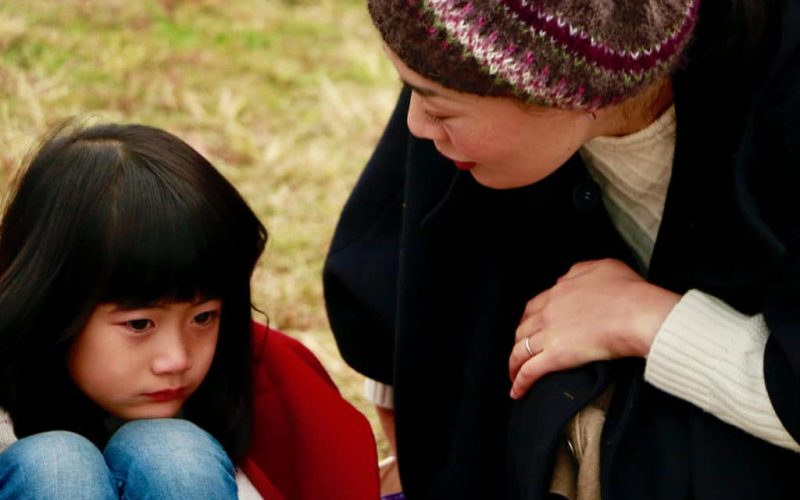Statistics show that almost every single parent is confident that they are doing a good job raising their kids and teaching them life lessons.
However, raising a child isn’t ever a jolly ride, because sometimes, even adult lose it and let their emotions come in the way of their judgment.
Most times parents punish their kids more than they deserve and this in turn negatively affects how children respond to being disciplined.
These punishments have adverse consequences on children as they develop fear and anxiety, making things difficult for them.
1. A child shouldn’t be punished if they don’t have bad intentions
Most of the time children allow their curiosity gets the best of them, which is why it is important to show support when they are trying to explore or become adventurous. Sometimes this exploration may lead to something terrible. This is no reason to punish them.
Learning is one of the best ways to raise a kid, and once they know what they’re doing isn’t right they wouldn’t try it again. Punishing them wouldn’t teach them any lesson, they would instead become even more curious why you’re punishing them for what they don’t even know.
You risk raising an indecisive person if you punish your child for accidents, especially accidents they have no control over. Your children would be able to decide for themselves what is good and what is bad if you allow them to make mistakes, but if you keep punishing them for things they have no idea of, then you are raising them to be irresponsible.
2. Publically punishing your child is not acceptable
Children display embarrassment and anger when they are publically punished. Using phrases like “what will people think” or “what will people say” isn’t advisable. This automatically puts them in a box of expectation and may become too afraid to take risks.
A child would expect a repeat of humiliation and public punishment if he or she has been treated that way before. They, in turn, grow into adults that look up to other people for permissions or opinions before taking bold steps to situations that concern even them.
3. If you want to punish, go ahead and punish
If you say you want to punish your child, then make good your threat. Don’t leave your child in suspense of the punishment to the mistakes they made. Not punishing them when you say you would make your child lose trust in you and this character and situation change could have a lasting impact knowing their lives.
This could damage their system of value because they can’t tell the difference between good and bad, simply because whenever they make mistakes they don’t get punished.
4. Suggestions and orders are two different things
This is referred to as stereotypical actions. Most parents believe the traditional way of raising children is right. Adults like to think “because it is right” or because “my parents did just the same thing” so I must do the same.
There is a big difference between saying, “maybe you shouldn’t play computer games” and “don’t play games.” If you noticed, the former is a suggestion, and the latter is an order.
You can only punish your children if you’ve given them an order to do or not to do something and they went against it. If your child is strong and stable emotionally, they can be okay getting punished for going against something that was suggested.
However, sensitive kids become sensitive when they grow up and would do all it takes to follow orders of people they respect so that they don’t face any consequences.
5. Children shouldn’t be punished emotionally
Some parents, despite the love you have for your kids, get really upset when their children disobey them, and this is because parents expect so much from their children and then get disappointed when the children don’t live up to their expectations.
You shouldn’t scream at your child or talk them down for things they didn’t excel in. Encourage them to do better instead. Talking them down only affects them negatively. Psychologists believe that emotionally punishing your child makes them dependent on individuals who have high social status.
6. Children shouldn’t be punished for mistakes they did in the past
Children should be punished for current mistakes and not things that had been long forgotten. If you must teach a child forgiveness, you also must practice forgiveness. Never dig up old errors and make them feel bad about it. This only goes to show you haven’t forgiven and forgotten.
Doing this only kills the confidence of your child and discourages them from being innovative for fear that they might end up being punished, even though what is good. It would also make them fixate on past problems or mistakes instead of moving on and growing mentally.
If however, you are just finding out about a mistake your child did in the past, psychologists recommend that you should talk to them and explain that what they did was wrong and if there were a repeat, they would be punished, instead of actually punishing them.
7. The right punishments for the right age
No matter how severe the mistakes a child makes, parents shouldn’t make the mistake of over-punishing their children. The system of punishment should be balanced. Be careful not to let anger take control of your actions when punishing or correcting your child. “small mistakes – small punishments,” “big mistakes – big punishments.”
You should also consider your child’s age before doing something you might regret. You could merely restrict your child’s access to the internet or game. This is punishment enough and also means you avoid hurting them physically.
Also, a child may not be able to build a good system of moral values if he or she keeps getting the same punishment for different mistakes they make. It also hinders them from being able to differentiate how essential they are.
8. If no one is guilty, punish everyone
If there’s a case where a mistake is being made, and a parent isn’t sure who made a mistake, one child should be disciplined over the rest.
Instead, everyone should be penalized because, if one child gets the punishment for a mistake no one owns up to, it sends a very wrong message to both the child that’s being punished – guilty or not -, and the rest of the children that aren’t.
If you picked one person to punish, it might affect them in the future as they may always be selected as the scapegoat whenever something goes wrong. It may also affect the child’s self-esteem.
9. Mind your language
Whatever you do, don’t use vulgar words when punishing your children. Sometimes we get really emotional, and the words just keep flowing out of our mouths without even realizing the things we are saying. Whatever you do, don’t get carried away and say things you don’t mean to your child.
Words are very powerful, and you need to be careful with the choices of words you use in addressing some situations. You may have had to punish your child due to some mistakes they made.
What methods did you use? How did they turn out after being corrected? Did they learn from their lesson? Please drop your answers in the comments below. Thanks







